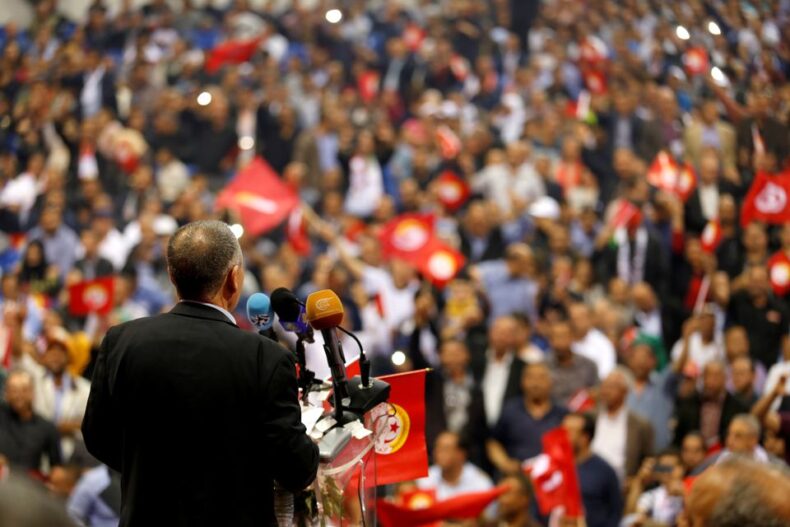The strong UGTT union in Tunisia has called for a countrywide public strike in June due to the government’s refusal to boost pay, an escalation that might impede the government’s attempts to negotiate an agreement with the International Monetary Fund.” Powerful Tunisian union proclaims “
Tunisia confronts a severe financial crisis and is requesting a $4 billion loan from the IMF in return for controversial measures, including a reduction in food and energy subsidies and pay freezes, deemed required to prevent national bankruptcy.
With over 1 million members, the UGTT is the most prominent political movement in Tunisia. The strike on June 16 will provide President Kais Saied with his greatest challenge yet, after his seizure of extensive powers and transition to one-man rule.
In April, inflation hit an all-time high of 7.5%, prompting the UGTT to reject suggested budget cutbacks in favor of salary hikes for state employees.
The organization said that 159 state-owned industries, including airlines, marine, and land transport companies, will participate in the Strike. “Powerful Tunisian union proclaims “
The UGTT is seeking an urgent reform plan for businesses that do not include selling them.
Public corporations are experiencing a major financial crisis involving billions of dollars as a result of rising losses, indebtedness, and staff growth.
Mr. Saied, who seized executive authority and dissolved parliament to govern by decree, has subsequently said that on July 25 he will replace the democratic constitution of 2014 with a new one via a vote.
Opponents of the president accuse him of a coup that has damaged the democratic accomplishments of the 2011 revolution that sparked the Arab Spring, while he claims his actions were legitimate and necessary to prevent a protracted political crisis in Tunisia.
Critics assert that although Said concentrates on transforming Tunisian politics, he pays little attention to the North African nation’s crumbling economy. He has consistently said that Tunisia is wealthy, but that the political class stole the people’s money, a position that his opponents consider populist.
As a result of a stronger U.S. currency and a dramatic rise in grain and oil prices, Tunisia’s budget deficit will grow to 9.7 percent of GDP this year, as opposed to the previously predicted 6.7 percent, according to central bank governor Marouan Abassi.
read more:-https://tdznkwjt9mxt6p1p8657.cleaver.live/husband-gets-his-wife-arrested-in-mumbai-after-learning-she-forged-her-education-certifications/













